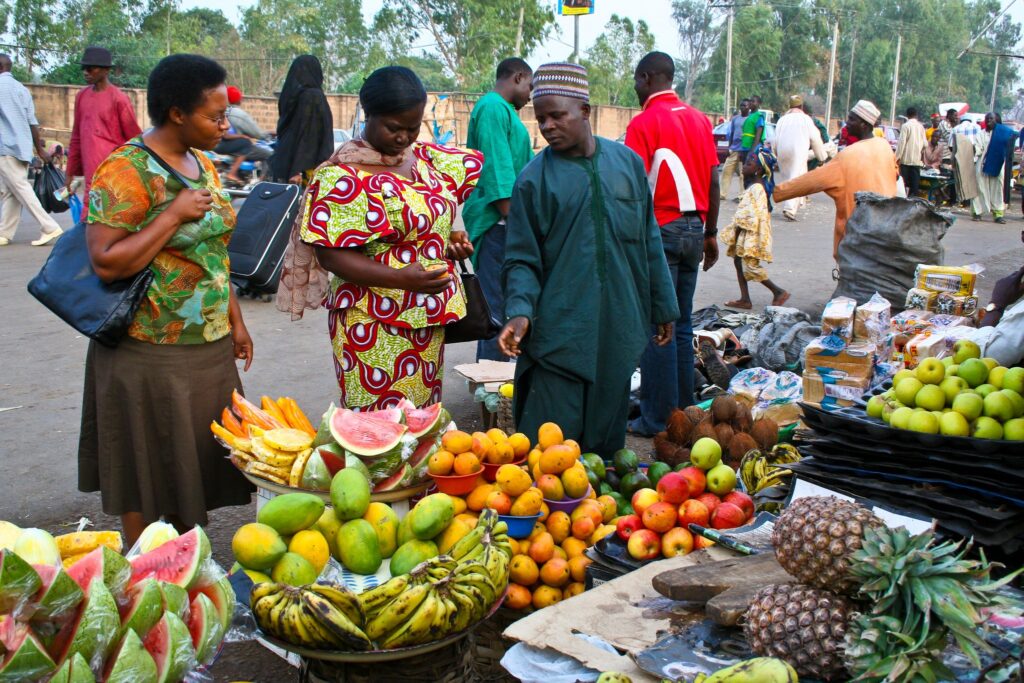Human nutrition is the study of how food and nutrients contribute to survival, health, growth, development, and overall well-being of human. It involves understanding the processes by which the body ingests, digests, absorbs, transports, utilizes, and eliminates food substances. Additionally, human nutrition is considered the science of food, its nutrients, and other essential components. The primary aim of nutrition is to support normal growth and functioning. The effectiveness of food utilization by the body depends on the selection and preparation of meals.
Ensuring food safety during preparation is crucial to prevent the transmission of food-borne illnesses (FBIs) to consumers. Some pathogens, particularly harmful to infants and children, can cause varying degrees of health issues. Examples include Aeromonas hydrophila, enterohemorrhagic Escherichia coli, Cryptosporidium parvum, and Listeria monocytogens.
Given that caregiving, particularly by mothers, often involves food preparation for the family, it is essential for caregivers to have knowledge and expertise in safe food handling. Research indicates that caregivers’ level of nutritional knowledge directly influences feeding practices. Insufficient knowledge about child nutrition among caregivers significantly contributes to poor dietary habits in children under five years old.
Inadequate food practices and choices made by mothers have been identified as contributing factors to childhood malnutrition. This can manifest in conditions such as stunting and wasting, which result from poor nutrition during pregnancy, insufficient nutrient intake in early childhood, and/or exposure to infections and diseases. Children affected by stunting may experience permanent limitations in linear growth and may not reach their full cognitive potential, impacting their readiness for school, learning abilities, and future opportunities. Wasted children often have weakened immune systems, increasing their vulnerability to infections and mortality. Even if they survive, they remain at risk of stunted growth and long-term developmental delays.
When healthy food options are accessible, convenient, and appealing, parents and caregivers are more likely to make beneficial dietary choices for children. Conversely, studies have shown that excess caloric intake, leading to overweight and obesity, can occur when children consume more energy from food and beverages than they expend. Overweight children face heightened risks of obesity-related health issues and may experience behavioral and emotional challenges, including social stigma, low self-esteem, and mental health issues such as depression.
Current Situation of Food Security, Food Safety, and Food Practices in Nigeria
Although the primary responsibility for nutrition education falls on nutritionists and dietitians in Nigeria, nurses, doctors, and other paramedics also play important roles, especially considering the scarcity of registered nutrition professionals in the country. The bulk of nutrition education initiatives, including programs and interventions, are typically sponsored by organizations such as the United Nations International Children’s Emergency Fund (UNICEF) and the World Health Organization (WHO). Consequently, there is limited information and inadequate understanding regarding food preparation and dietary choices from the perspective of nutrition experts.
Food safety and security are essential components of ensuring the sustainability of the human population. Food safety refers to the assurance that food, when prepared or consumed according to its intended use, will not cause harm to the consumer. It encompasses the handling, preparation, and storage of food, addressing issues related to food-borne illnesses (FBIs). Despite its importance, adequate food safety measures are often overlooked, leading to numerous cases of illness and even fatalities each year due to consumption of contaminated food containing bacteria, viruses, parasites, and chemicals. Children under five years old are particularly vulnerable to FBIs, with Africa experiencing a high prevalence of such diseases.
The process of ensuring food safety begins at the farm and extends throughout the entire food supply chain. Farmers must adopt practices that minimize contamination, while food processors and packaging companies must maintain strict hygiene standards. Imported foods should undergo rigorous inspection before consumption. Key principles of food safety include cleanliness, proper separation of raw and cooked foods, thorough cooking, maintaining appropriate food temperatures, and using safe materials and water.
Food security, as defined by the United Nations and the Food and Agriculture Organization (FAO), refers to the availability of sufficient, safe, and nutritious food to meet the dietary needs and preferences of all people, ensuring an active and healthy life. Despite Nigeria’s abundant natural and human resources, the country faces food insecurity, largely due to historical factors such as neglect of peasant agriculture in favor of cash crops and oil production. However, Nigeria has the potential to achieve food security through policies focused on rural development, improving access to agricultural inputs, allocating adequate budgets to the agricultural sector, implementing appropriate policies for food crop production, ensuring political stability, reducing rural poverty, and providing education for small-scale farmers.
Food security, which includes ensuring both food safety and adequate nutrition for children under five, is of paramount importance. According to the 2020 Global Report on Food Crises, approximately 135 million individuals across 55 countries and territories suffer from acute food insecurity, with 73 million of them residing in 36 African nations, including Nigeria. Nigeria, with an under-five mortality rate of 11.7%, faces significant challenges in this regard.

Without achieving food security, Nigeria would struggle to meet the basic health needs of its population. Various factors threaten food security, including limited access to nutritious and safe foods, lack of education, high birth rates, complex food supply chains, shifting demographics, rising food prices, natural disasters, conflict, maternal literacy levels, and other issues prevalent in economically disadvantaged areas. Lack of food security not only induces physiological and psychological stress but also adversely impacts children under five. The economic burden associated with food-borne illnesses amounts to approximately $3.6 billion annually.
Food preparation in Nigeria is both an art and a science, aimed at enhancing the taste, palatability, and nutritional value of meals. Different methods of food preparation, such as boiling, grilling, smoking, or frying, contribute to the diversity of meals available. Proper food preparation improves appearance, digestibility, flavor, and shelf-life while also destroying harmful microbes and oxidative enzymes.
Researchers identify two main methods of food preparation: pre-preparation, involving activities like cleaning, peeling, and washing, and preparation, involving heat-based methods like boiling, frying, or steaming. The choice of preparation method significantly affects the nutritional content and availability of minerals, vitamins, and essential compounds in food. For instance, adding local additives such as “potash” or ginger to children’s food without proper proportioning can have adverse effects on their health.
Food choice, on the other hand, is a complex process influenced by various factors, including cultural heritage, economic considerations, and social influences. It plays a crucial role in expressing preferences and identifying cultural identity while also impacting health outcomes such as morbidity and mortality.
Children, particularly those under five years old, are heavily influenced by their parents’ food habits and choices when it comes to their own dietary preferences. Additionally, genetic factors contribute to children’s appetite traits, while their environment plays a significant role in shaping their eating behaviors, especially in the case of young children. Children’s food preferences are influenced by a combination of genetic predispositions, family influences, and environmental factors. Since children are often hesitant to try new foods, parents play a central role in shaping their food habits and preferences.
It is commonly assumed that individuals make food choices based on various factors such as what, when, how, where, and with whom they eat. This phenomenon is observed in both rural and urban communities across Africa, including Nigeria. Food-related decisions are influenced by a multitude of factors, including cultural norms, educational background, religious beliefs, and socioeconomic status, particularly among parents and caregivers. However, existing research primarily focuses on understanding the decision-making process behind food choices within the context of the food environment dimension, paying less attention to individual-based motives for food selection.
Implications of Food Preparation and Food Choice on the Nutritional Growth of the under-5 Children
The way food is prepared and chosen has significant implications for the nutritional development of children under five. Common foods like noodles, beans, rice, and yam are frequently given to young children in Nigeria, particularly during the complementary feeding period. Unfortunately, these foods are often inadequately prepared and lack fortification, which can pose health risks to children, especially if abruptly introduced after weaning from breastmilk.

Research indicates that malnourished children are at a higher risk of succumbing to common childhood illnesses such as measles, diarrhea, and malaria, which tend to be more severe, frequent, and prolonged in such cases. Inadequate food choices and poor food preparation directly or indirectly contribute to more than a third of all child deaths globally. In Nigeria specifically, studies have shown alarming rates of malnutrition, with 29% of children under five being underweight, 18% experiencing wasting, and 37% suffering from stunted growth. Marasmus, a severe form of protein-energy malnutrition, is particularly prevalent in southeastern Nigeria.
Furthermore, the age of the child appears to influence the impact of food preparation and choices on their nutritional status. Children between 13 and 24 months old are more likely to experience stunted growth, while those aged 37 to 48 months are more prone to wasting. This suggests that older children, over 12 months of age, are more affected by the quality of food preparation and dietary choices than younger ones.
Additionally, certain medical conditions such as tuberculosis, diarrhea, and measles can exacerbate malnutrition by weakening the immune system of already undernourished children, making them more susceptible to further health complications.



